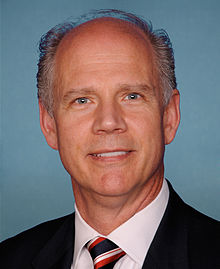
U.S. Rep. Dan Donovan (R-NY), chairman of the House Emergency Preparedness, Response, and Communications Subcommittee, recently won House approval of counterterrorism legislation that improves the capabilities of first responders and strengthens homeland security.
“My plan is to try to utilize our policymaking power and our purse strings to help first responders: to equip them, train them and give them the resources they need to prepare for an emergency and respond in the case when one happens,” Donovan told Homeland Preparedness News in a recent interview.
Directing federal funds toward firefighters, police officers and offices of emergency management for training and buying equipment to protect against a potential chemical, biological, radioactive or nuclear threat is a high priority, said Donovan, who represents Staten Island and south Brooklyn.
The House recently passed Donovan’s Securing the Cities Act, which would permanently authorize the Securing the Cities program, protecting it from future budget cuts. The program aims to reduce the risk of a radiological or nuclear weapon being deployed against high-risk metropolitan areas in the United States. The program helps state and local agencies with training and equipment to detect, analyze, and report nuclear and other radioactive materials.
Some of the cutting-edge equipment cities have purchased under the program include radiation devices, radioisotope identification devices, backpack detectors and mobile systems.
“The Obama administration had cut $100 million from the program,” Donovan noted. “It was devastating New York’s capabilities in protecting its citizens. We got that money restored in the fiscal year 2017 budget.”
The Securing the Cities program began as a pilot in 2006 in the New York and New Jersey metropolitan region. It was later expanded to Los Angeles, Washington D.C., Houston and Chicago.
The Department of Homeland Security plans to expand the program to more metropolitan areas in the future. Once fully implemented, the department said the program could protect nearly 100 million people.
Last year, Donovan also helped reverse proposed cuts to the Urban Areas Security Initiative, which provides hundreds of millions of dollars in anti-terror funding to high-risk cities. Last year, New York City received $180 million to protect against terror attacks, including to purchase equipment to protect against a dirty bomb or radiological attack.
“It is certainly my goal to make sure we not only keep those grants in place, but to increase them as the need demands,” Donovan said.
Another bill authored by Donovan that passed the House, the Cyber Preparedness Act, would improve the sharing of cyber-threat information and coordination between federal, state, and local authorities. Specifically, the bill would allow representatives from state and urban fusion centers to operate jointly out of the Department of Homeland Security’s National Cybersecurity and Communications Integration Center. The bill also clarifies that homeland security grants can be used to fund state and local cybersecurity initiatives.
The subcommittee Donovan chairs also has jurisdiction over the homeland security grant programs managed by the Federal Emergency Management Agency (FEMA).
President Donald Trump has not yet appointed an administrator to manage FEMA. A part of the U.S. Department of Homeland Security, FEMA is tasked with responding to both natural and man-made emergencies.
The subcommittee will hold the first of a two-part hearing on Feb. 14 that will provide recommendations to the next administrator of FEMA. Officials who helped lead FEMA under past administrations, and also emergency management and first responders will testify and provide insight on what the priorities should be for the agency going forward.
Donovan notes that past hearings held on behalf of the subcommittee have resulted in legislation. For example, Donovan’s Transit Security Grant Program Flexibility Act, which passed the House on Jan. 31, was a direct response to feedback the subcommittee received from transit agencies at a subcommittee hearing last year.
The Transit Security Grant Program provides transit systems with funds to protect both critical transportation infrastructure and travellers from acts of terror. The bill would allow the grant funds to cover additional security training costs and would also extend the deadline for using the security grants from two to three years.
The three bills of Donovan’s that were recently approved were originally introduced and passed by the House during the previous Congress. Donovan said he was hopeful the legislation could be approved by the Senate this year given that Democrat U.S. Sen. Charles Schumer, a fellow New Yorker, is now minority leader.
“New York City is and will remain the No. 1 terrorist target in the world. Our goal is to make sure our very brave women and men have the resources they need to protect our citizens,” Donovan said. “About protecting our homeland, we realize the federal government has the responsibility, but it is our local first responders who actually do it day to day.”




